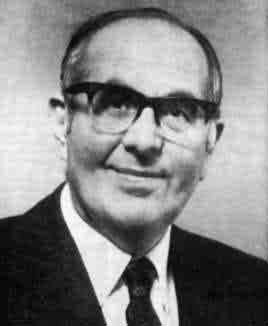

تاريخ الرياضيات

الاعداد و نظريتها

تاريخ التحليل

تار يخ الجبر

الهندسة و التبلوجي


الرياضيات في الحضارات المختلفة

العربية

اليونانية

البابلية

الصينية

المايا

المصرية

الهندية


الرياضيات المتقطعة

المنطق

اسس الرياضيات

فلسفة الرياضيات

مواضيع عامة في المنطق


الجبر

الجبر الخطي

الجبر المجرد

الجبر البولياني

مواضيع عامة في الجبر

الضبابية

نظرية المجموعات

نظرية الزمر

نظرية الحلقات والحقول

نظرية الاعداد

نظرية الفئات

حساب المتجهات

المتتاليات-المتسلسلات

المصفوفات و نظريتها

المثلثات


الهندسة

الهندسة المستوية

الهندسة غير المستوية

مواضيع عامة في الهندسة

التفاضل و التكامل


المعادلات التفاضلية و التكاملية

معادلات تفاضلية

معادلات تكاملية

مواضيع عامة في المعادلات


التحليل

التحليل العددي

التحليل العقدي

التحليل الدالي

مواضيع عامة في التحليل

التحليل الحقيقي

التبلوجيا

نظرية الالعاب

الاحتمالات و الاحصاء

نظرية التحكم

بحوث العمليات

نظرية الكم

الشفرات

الرياضيات التطبيقية

نظريات ومبرهنات


علماء الرياضيات

500AD

500-1499

1000to1499

1500to1599

1600to1649

1650to1699

1700to1749

1750to1779

1780to1799

1800to1819

1820to1829

1830to1839

1840to1849

1850to1859

1860to1864

1865to1869

1870to1874

1875to1879

1880to1884

1885to1889

1890to1894

1895to1899

1900to1904

1905to1909

1910to1914

1915to1919

1920to1924

1925to1929

1930to1939

1940to the present

علماء الرياضيات

الرياضيات في العلوم الاخرى

بحوث و اطاريح جامعية

هل تعلم

طرائق التدريس

الرياضيات العامة

نظرية البيان
Reuben Louis Goodstein
المؤلف:
Obituary R L Goodstein
المصدر:
Bull. London Math. Soc. 20
الجزء والصفحة:
...
13-12-2017
459
Died: 8 March 1985 in Leicester, England

Louis Goodstein's father was Alexander Goodstein. Educated at St Paul's School London, Louis won scholarships and a prize for an essay on divergent series. He entered Magdalene College Cambridge in 1931 and his special subject in his undergraduate course was analysis. He graduated with First Class honours in 1933.
Goodstein then did research at Cambridge on transfinite numbers under Littlewood's supervision. After receiving his Master's Degree he accepted a post in pure and applied mathematics at Reading University in 1935. During the war years he had to cover teaching in a wide range of pure and applied mathematical topics, among them engineering, applied mathematics, analysis and group theory.
While undertaking this strenuous teaching load Goodstein carried out research which he submitted for a doctorate to the University of London in 1946. He was appointed professor at University College, Leicester, in 1948 and he remained there for the rest of his life. At Leicester [1]:-
... he presided over an expansion from a mathematics staff of six to 23 at the time of his retirement in 1977, with a corresponding increase in student numbers.
At Leicester Goodstein played a full role. He was Dean of Science at the critical time of the transition to full university status which occurred in 1957. From 1966 to 1969 he served as Pro-Vice-Chancellor to Leicester University.
Goodstein worked on mathematical logic, in particular ordinal numbers, recursive arithmetic, analysis, and the philosophy of mathematics. He was extremely interested in the teaching of mathematics and [2] lists 66 papers which he published on teaching mathematics at both school and university level.
His eleven textbooks were, according to [2]:-
... characterised by their clear style and ingenious methods to elucidate difficult points. He was disappointed that his mathematical analysis text ... which presented a novel approach to elementary differential and integral calculus ... did not find favour.
It is interesting to note that he was the first mathematical logician to hold a chair at a British University and he exercised an important influence on the development of this topic in the UK [1]:-
A private and essentially shy person, Louis Goodstein will be remembered for great courtesy and generosity towards colleagues and students.
We should also note Goodstein's excellent work for the Mathematical Association [1]:-
... he was instrumental in arranging for the transfer of its library and later its headquarters to Leicester, and contributed nearly 70 notes as well as hundreds of reviews to the Mathematical Gazette, which he sustained at a high academic level during his editorship from 1956 to 1962.
Articles: